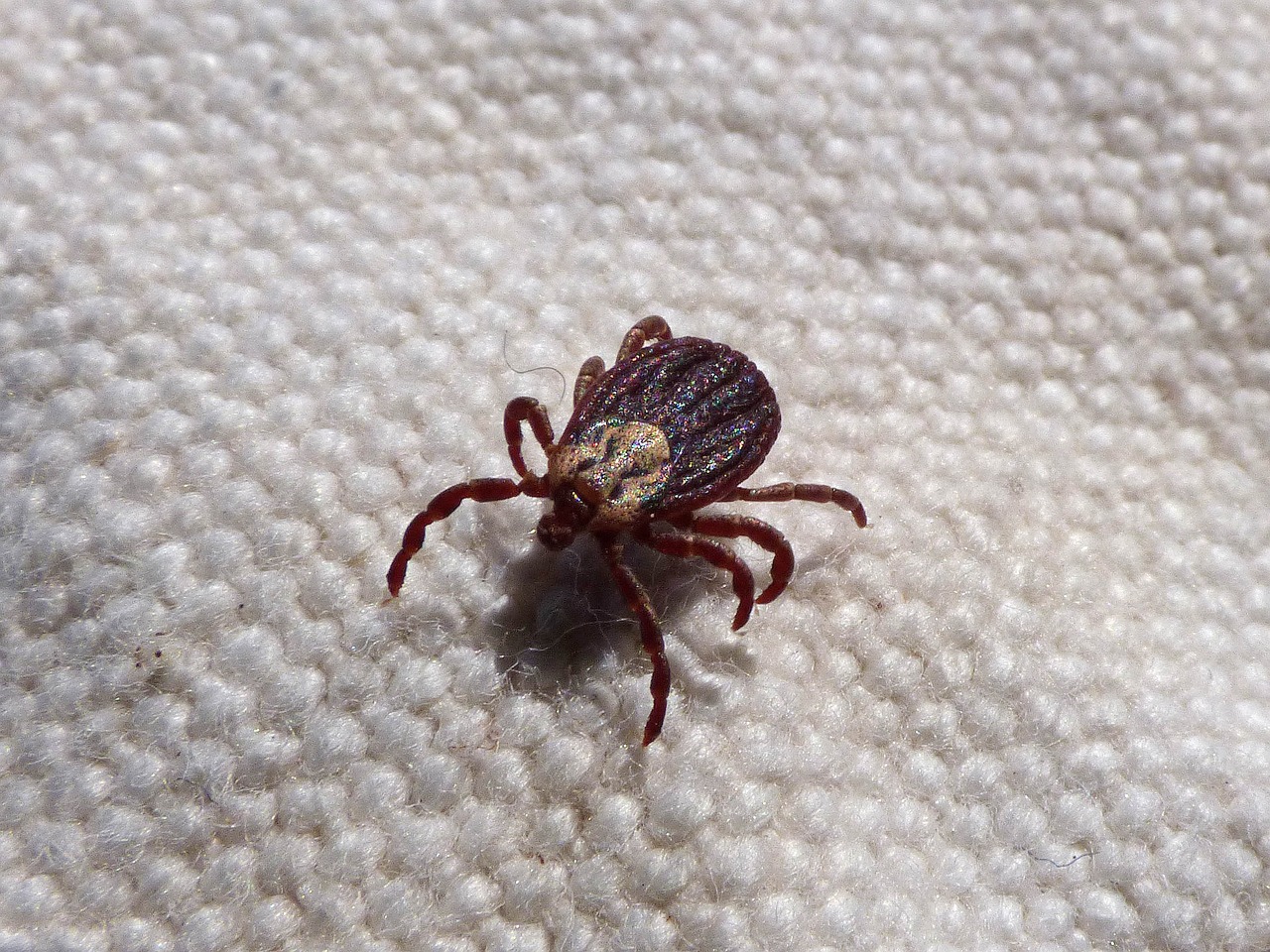Parasites and Pets

It's time for candid talk: your beloved pet might be harboring unwelcome parasites, and you might not even know it. These bothersome parasites can be external hitchhikers or internal invaders that are sneakier to detect.
Vigilance is crucial. Start with prevention as your first line of defense. This proactive approach can prevent parasitic infestations and save you and your pet from the associated discomfort and trouble.
Understanding the distinction between "endemic" and "nonendemic" areas in your locale is also vital. Parasitic conditions can evolve, so it's unwise to assume your neighborhood is always free from such threats. You may be surprised at how recent diagnoses can change your region's classification.
Consulting your veterinarian is essential when considering your pet's parasitic preventive care. Their expertise, coupled with appropriate testing and accurate dosages, ensures that your pet receives the proper treatment and prevention.
Internal Parasites
1. Tapeworms
Tapeworms are flatworms composed of a head, neck, and numerous segments, each with its reproductive system. These parasites can grow up to 8 inches in length. Their life cycle commences when a flea ingests tapeworm larvae, which then develop into immature tapeworms within the flea. When pets swallow a flea containing these immature tapeworms, they become infected. Once inside the pet's digestive system, the tapeworm attaches to the intestinal lining. Over time, worm segments break off and can be found in the pet's feces or around the rectal area. These dried segments look similar to rice grains or sesame seeds. Swift treatment and eliminating fleas from the pet and its environment are necessary.
Prescribed dewormers can effectively treat your pet for tapeworms. If untreated, tapeworm infestations can lead to digestive disturbances, poor skin and hair condition, and weight loss.
2. Heartworms
Heartworms are parasitic worms that can reside inside a pet's heart if not detected in time. Infection can occur at any time of the year. Infected mosquitoes transmit heartworm larvae when they bite pets. These larvae enter the pet's bloodstream and eventually mature into worms in the heart. Without treatment, infestation can occur.
Preventive care, especially in the case of cats, is highly recommended. Unfortunately, there is no approved treatment for heartworm infections in cats. Left untreated, heartworms can be fatal.
Ensuring your pet doesn't miss any preventive treatment cycles is critical, as starting treatment after missing a process without retesting your pet can lead to severe health complications. If you've missed a heartworm treatment, schedule an appointment with your veterinarian to reinstate preventive care.
Signs of heartworm disease may include a mild cough, fatigue, vomiting, and abdominal swelling.
3. Roundworms
Roundworms are frequently found in puppies and kittens, as they can be contracted from their mother before birth or through her milk. Pets can also become infected by ingesting roundworm eggs found in the environment, vomit, stool of other infected animals or pets, or contaminated soil and water. The roundworm eggs hatch when ingested, and the larvae spread into the pet's liver and windpipe. Coughing pushes the swallowed larvae into the intestine, where they develop and lay their eggs. Preventive care and treatment options are available.
Pets infected with roundworms can exhibit symptoms such as abdominal swelling, coughing, vomiting, diarrhea, and loss of appetite. Effective preventive care and treatment can help manage this condition.
External Parasites
1. Fleas
Fleas, about the size of a pinhead, inflict itchy bites on pets, leading to excessive scratching that can cause skin infections. A flea can survive a few weeks on your pet and lay 20-30 eggs daily. These eggs can hatch into larvae on your pet and home. Combining preventive care for your pet with treatment of your living environment is essential to maintain a flea-free existence. If you notice your pet frequently scratching and licking, seek an evaluation for fleas.
2. Ticks
Ticks, bloodsucking parasites, are most prevalent in spring and fall and can be challenging to remove. Pets may be exposed when visiting dog parks or nature trails or interacting with other animals in your yard. In rarer cases, ticks can be carried by people unknowingly. Sometimes, ticks can be mistaken for moles. After outdoor activities, check your pet's body, especially the paws, legs, armpits, and belly, for small brown or black "bumps."
Ticks can transmit serious diseases, including Lyme disease, to pets. Various preventive treatments are available, including spot-on or oral medications, shampoos, tick dips, and tick collars. If you need clarification on the correct tick removal procedure, seek assistance from your veterinarian. The tick's head can be stubbornly embedded in your pet, and improper removal may result in partial extraction.
Before initiating any home-based parasitic prevention program, discussing prevention and treatment with your veterinarian is crucial. Proper testing and accurate dosages are essential to determine your pet's unique parasitic preventive and treatment requirements.
How to Manage Parasite Infections in Pets
Dealing with parasites that can affect your beloved cat or dog may seem daunting, but most common pet parasites are treatable. Here's how you can effectively address these issues:
Early Veterinary Evaluation: As soon as you notice symptoms or suspect your pet may have a parasite, scheduling a veterinary appointment promptly is crucial. The veterinarian will conduct a thorough examination and perform necessary tests to accurately diagnose your pet's condition.
Tailored Parasitic Treatment Plan: Once diagnosed, you and your veterinarian can collaborate on a treatment plan. This plan may include specific medications tailored to your pet's needs and additional care instructions.
Adherence to Veterinarian's Guidance: Following your veterinarian's advice is essential to ensure your pet's recovery and return to good health after combating parasites. If you ever feel the treatment is not progressing, contact your veterinarian for further guidance.
Preventative Parasitic Measures: While understanding treatment options is crucial, preventing parasites from affecting your pets in the first place is equally important.
Consider using monthly preventives for common parasites like fleas, ticks, and heartworms. These can be administered as chewable pills, topical liquids, or collars. Consult your veterinarian for recommendations on the most suitable preventive for your pet.
-
Regularly check your pet for abnormalities, such as skin redness or parasites, especially after outdoor activities or hikes.
-
Protect your pets from potentially contaminated water sources and animals carrying parasites.
-
Maintain a clean environment by regularly cleaning your pet's toys, bedding, and blankets.
Preventing Parasites in Dogs:
Since dogs often spend time outdoors and may explore the environment, preventing parasites in dogs is a lifelong commitment. In addition to preventive medicines, consider the following:
-
Be vigilant when brushing your dog, and watch for any signs of parasites or skin issues.
-
Be aware of the local flea and tick season, conducting thorough checks after outdoor adventures.
-
Prevent your dog from interacting with animals that may carry parasites.
-
Avoid letting your dog drink from potentially contaminated water sources.
-
Regularly clean your home, including your pet's belongings.
Preventing Parasites in Cats:
Keeping your cat indoors effectively protects them from parasites, diseases, and outdoor dangers. Follow these preventive measures for your feline friend:
-
Provide monthly preventives, following your veterinarian's recommendations.
-
Keep your cat away from potentially infected animals.
-
Monitor your cat's skin and fur regularly.
-
Maintain cleanliness by washing your cat's bedding and favorite spots.
Pet Insurance Coverage: Depending on your chosen pet insurance provider and plan, coverage for parasite-related treatment costs may vary. It's advisable to review the specific coverage options offered by your provider to determine if parasite treatments are included.
Early detection, effective treatment, and preventive measures are vital to managing and preventing parasites in your pets. Always consult your veterinarian for personalized guidance on your pet's healthcare needs.
Get insurance plans with wide-ranging coverage options













